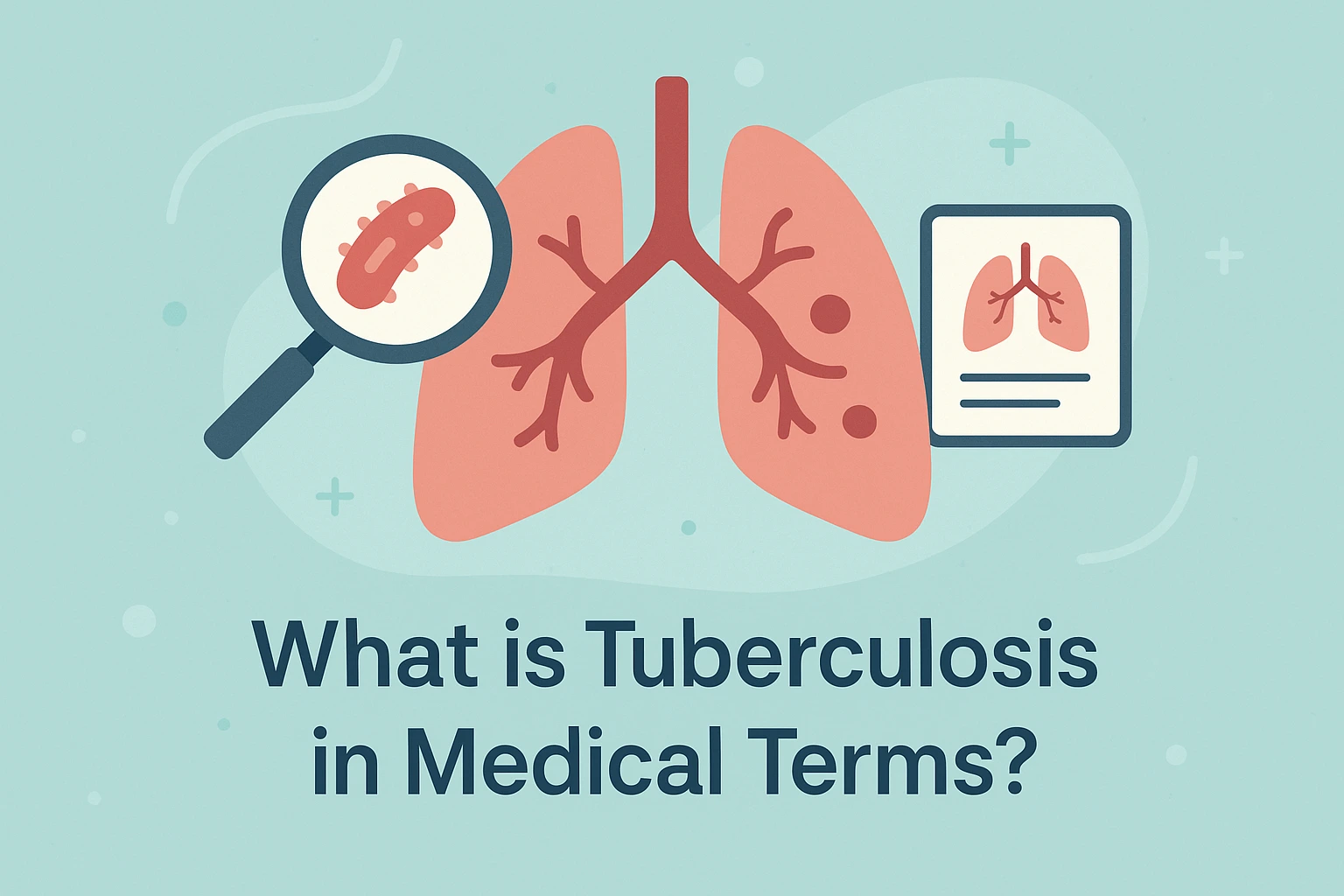Tuberculosis (TB) is a contagious bacterial infection primarily affecting the lungs, although it can also impact other parts of the body, such as the kidneys, spine, and brain. TB is caused by the bacterium Mycobacterium tuberculosis, which spreads through the air when an infected person coughs, sneezes, or speaks. Despite the availability of treatment, tuberculosis remains a global health threat, particularly in areas with high rates of poverty, malnutrition, and HIV infection.
If you experience a persistent cough, especially with blood-tinged sputum, night sweats, unexplained weight loss, or prolonged fever, it’s essential to see a healthcare provider for evaluation and possible TB testing. Early diagnosis and treatment are critical for controlling the disease and preventing its spread.

Types of Tuberculosis
- Latent TB: In this form, the bacteria remain dormant in the body without causing symptoms. The person is not contagious but may develop active TB later if their immune system becomes weakened.
- Active TB: This occurs when the bacteria become active and cause symptoms. People with active TB are contagious and can spread the infection to others.
- Multi-Drug Resistant TB (MDR-TB): A form of TB that is resistant to the standard treatment regimen of rifampicin and isoniazid, requiring longer and more complex treatment.
- Extensively Drug-Resistant TB (XDR-TB): A more severe form of drug-resistant TB that is resistant to nearly all available medications, making treatment difficult and often ineffective.
Symptoms of Tuberculosis
Symptoms of tuberculosis include a range of signs indicating the disease.
- Persistent cough lasting more than three weeks
- Unexplained weight loss
- Night sweats
- Fever and chills
- Fatigue
- Chest pain
Causes and Risk Factors of Tuberculosis
The primary cause of tuberculosis is Mycobacterium tuberculosis, which spreads through airborne droplets when an infected person coughs or sneezes. Risk factors include:
- Weakened immune system: Conditions like HIV/AIDS, malnutrition, or immunosuppressive therapy increase susceptibility to active TB.
- Close contact with infected individuals: TB spreads easily in crowded or poorly ventilated areas, making it more common in settings like hospitals, prisons, and refugee camps.
- Chronic diseases: Conditions such as diabetes or kidney disease may increase the risk of developing TB.
- Smoking: Tobacco use damages the lungs and increases the likelihood of contracting TB.
When to See a Doctor Tuberculosis?
Seek medical advice for possible tuberculosis if you experience persistent cough or unexplained weight loss. Night sweats can also be a concern. Emergency care should be sought for fainting, chest pain, or confusion.
Related Terms of Tuberculosis
FAQs for Tuberculosis
When should I go to the ER for tuberculosis?
If you experience severe symptoms such as fainting, chest pain, or confusion, seek emergency care.
How does heat and dehydration affect tuberculosis risk?
In hot climates like the UAE, dehydration can weaken the immune system, potentially increasing susceptibility to infections.
What are some ways to reduce the risk of tuberculosis?
Maintaining a healthy lifestyle, ensuring good nutrition, and avoiding close contact with infected individuals can help lower risk.
